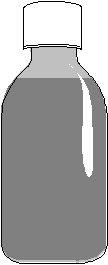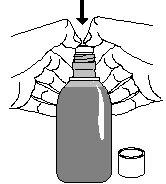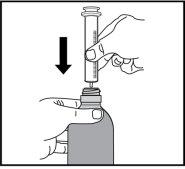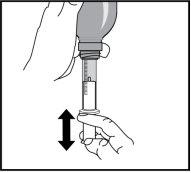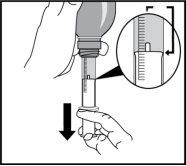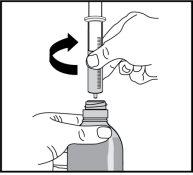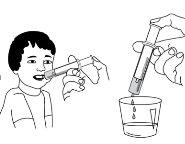
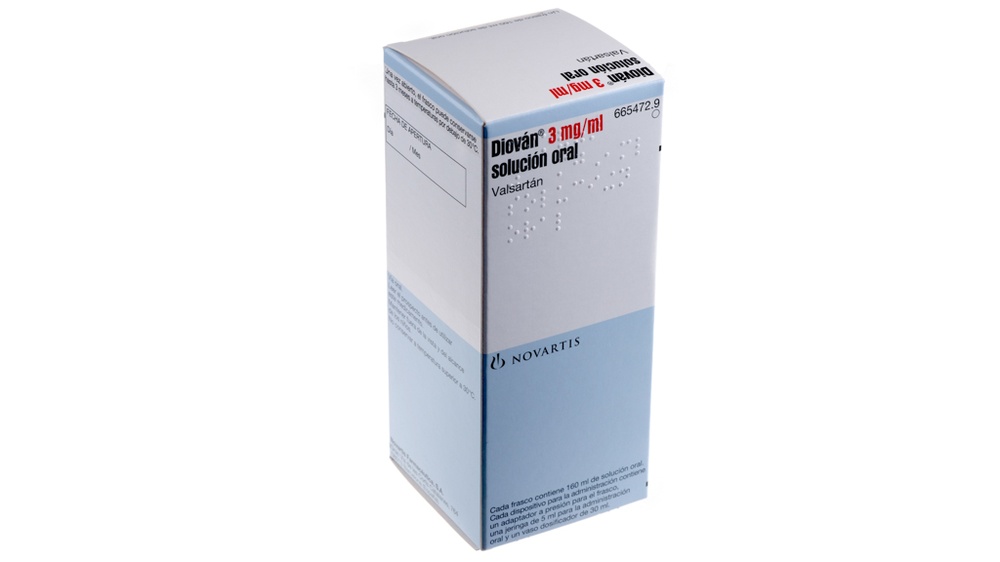
DIOVAN 3mg/ml SOLUÇÃO ORAL

Pergunte a um médico sobre a prescrição de DIOVAN 3mg/ml SOLUÇÃO ORAL

Como usar DIOVAN 3mg/ml SOLUÇÃO ORAL
Introdução
Prospecto: informação para o utilizador
Diován 3mg/ml solução oral
valsartán
Leia todo o prospecto atentamente antes de começar a tomar este medicamento,porque contém informações importantes para si.
- Conserva este prospecto, porque pode ter que o ler novamente.
- Se tiver alguma dúvida, consulte o seu médico ou farmacêutico.
- Este medicamento foi-lhe prescrito apenas para si, e não deve dá-lo a outras pessoas, mesmo que tenham os mesmos sintomas que o senhor, porque pode prejudicá-las.
- Se experimentar efeitos adversos, consulte o seu médico ou farmacêutico, mesmo que se trate de efeitos adversos que não aparecem neste prospecto. Ver secção 4.
Conteúdo do prospecto
- O que é Diován e para que é utilizado
- O que precisa saber antes de começar a tomar Diován
- Como tomar Diován
- Possíveis efeitos adversos
- Conservação de Diován
- Conteúdo do envase e informações adicionais
1. O que é Diován e para que é utilizado
Diován contém o princípio ativo valsartán e pertence a uma classe de medicamentos conhecidos como antagonistas dos receptores da angiotensina II, que ajudam a controlar a pressão arterial alta. A angiotensina II é uma substância do corpo que faz com que os vasos sanguíneos se estreitem, causando um aumento da pressão arterial. Diován actua bloqueando o efeito da angiotensina II. Como consequência, os vasos sanguíneos relaxam e a pressão arterial diminui.
Diován 3 mg/ml solução oral pode ser utilizadopara tratar a pressão arterial alta em crianças e adolescentes de 1 amenos de18anos de idade.A pressão arterial alta aumenta a carga de trabalho do coração e das artérias. Se não for tratada, pode danificar os vasos sanguíneos do cérebro, coração e rins e pode provocar um acidente vascular cerebral, insuficiência cardíaca ou insuficiência renal. A pressão arterial alta aumenta o risco de ataques cardíacos. A diminuição da pressão arterial para valores normais reduz o risco de desenvolver estes distúrbios.
2. O que precisa saber antes de começar a tomar Diován
Não tome Diován:
- se é alérgico(hipersensível) ao valsartán ou a qualquer um dos outros componentes deste medicamento (incluídos na secção 6).
- se sofre uma doença grave do fígado.
- se está grávidade mais de 3 meses(é melhor evitar também Diován durante os primeiros meses da gravidez – ver secção Gravidez).
- se tem diabetes ou insuficiência renal e está a ser tratado com um medicamento para reduzir a pressão arterial que contém alisquireno.
Se alguma das situações acima o afeta,informe o seu médiconão tomeDiován.
Advertências e precauções
Consulte o seu médico antes de tomar Diován
- se sofre uma doença do fígado.
- se sofre uma doença grave dos rins ou se está a ser submetido a diálise.
- se sofre um estreitamento da artéria do rim.
- se foi submetido recentemente a um transplante de rim (recebeu um rim novo).
- se experimentou inchaço da língua e da face causado por uma reação alérgica chamada angioedema quando tomou outros medicamentos (incluídos os IECAs), informe o seu médico. Se tiver estes sintomas quando tomar Diován, interrompa imediatamente o tratamento com Diován e nunca mais o tome. Ver também secção 4 “Possíveis efeitos adversos”.
- se apresenta dor abdominal, náuseas, vómitos ou diarreia após tomar Diován. O seu médico decidirá se continuar com o tratamento. Não deixe de tomar Diován por sua conta.
- se está a utilizar medicamentos que aumentam a quantidade de potássio no sangue. Entre eles figuram os suplementos de potássio ou substitutos de sal que contêm potássio, os medicamentos poupadores de potássio e a heparina. Pode ser necessário controlar regularmente a quantidade de potássio no sangue.
- se sofre aldosteronismo, uma doença em que as glândulas supra-renais produzem demasiada hormona aldosterona. Neste caso, não se recomenda tomar Diován.
- se perdeu muito líquido (desidratação) devido a uma diarreia, vómitos ou doses elevadas de diuréticos (medicamentos para aumentar a eliminação de urina).
- se está a tomar algum dos seguintes medicamentos utilizados para tratar a pressão arterial alta:
- um inibidor da enzima conversora de angiotensina (IECA) (por exemplo enalapril, lisinopril, ramipril), em particular se sofre problemas renais relacionados com a diabetes.
- alisquireno.
Pode que o seu médico o controle a função renal, a pressão arterial e os níveis de eletrólitos (por exemplo, potássio) no sangue a intervalos regulares.
Ver também a informação sob o título “ Não tome Diován”.
Deve informar o seu médico se acredita que está (ou pode estar) grávida. Diován não está recomendado no início da gravidez, e não deve ser tomado se está grávida de mais de 3 meses, pois pode causar danos graves ao seu bebé se o usar neste período (ver a secção gravidez).
Uso de Diován com outros medicamentos
Informa o seu médico ou farmacêutico se está a utilizar, utilizou recentemente ou pode ter que utilizar qualquer outro medicamento.
O efeito do tratamento com Diován pode ser alterado se for tomado com certos medicamentos. Pode que o seu médico tenha que modificar a sua dose e/ou tomar outras precauções ou, em alguns casos, interromper o tratamento de algum dos medicamentos. Isto é aplicável tanto a medicamentos adquiridos com receita como sem receita, especialmente:
- outros medicamentos que diminuem a pressão arterial,especialmente diuréticos(medicamentos para aumentar a eliminação de urina), IECAs (tais como enalapril, lisinopril etc.) ou alisquireno (ver também a informação sob os títulos “Não tome Diován” e “Advertências e precauções”).
- medicamentos que aumentam a quantidade de potássiono sangue. Entre eles figuram os suplementos de potássio ou substitutos de sal que contêm potássio, os medicamentos poupadores de potássio e a heparina.
- certos medicamentos para tratar a dorchamados anti-inflamatórios não esteroideos (AINEs).
- alguns antibióticos (do grupo da rifampicina), um fármaco utilizado para proteger contra o rejeição em um transplante (ciclosporina) ou um fármaco antirretroviral utilizado para tratar a infecção por HIV/SIDA (ritonavir). Estes fármacos podem aumentar o efeito de Diován.
- lítio,um medicamento utilizado para tratar certos tipos de doenças psiquiátricas.
Gravidez e amamentação
- Deve informar o seu médico se está grávida(ou se suspeita que possa estar grávida).O seu médico geralmente lhe recomendará que deixe de tomar Diován antes de ficar grávida ou tão pronto quanto saiba que está grávida e lhe recomendará que tome outro medicamento em vez de Diován. Não se recomenda utilizar Diován no início da gravidez, e em nenhum caso deve ser administrado a partir do terceiro mês de gravidez, pois pode causar danos graves ao seu bebé quando administrado a partir desse momento.
- Informe o seu médico se está em período de amamentação ou vai começar com o mesmo. Não se recomenda o uso de Diován durante a amamentação, e o seu médico escolherá outro tratamento para si se desejar amamentar, especialmente se o seu bebé é recém-nascido ou prematuro.
Condução e uso de máquinas
Antes de conduzir um veículo, usar ferramentas ou manejar máquinas, ou realizar outras atividades que requeiram concentração, certifique-se de conhecer como Diován o afeta. Como muitos outros medicamentos utilizados para tratar a pressão arterial alta, Diován pode causar tonturas e afetar a capacidade de concentração.
Diován contém sacarose, parahidroxibenzoato de metilo, poloxâmero, sódio e propilenoglicol
- Diován solução contém 0,3 g de sacarosepor mililitro. Tenha isso em conta se padece diabetes mellitus. Se o seu médico lhe disse que sofre uma intolerância a certos açúcares, contacte-o antes de tomar Diován solução. A quantidade de sacarose presente na solução de Diován pode ser prejudicial para os dentes.
- Diován solução contém parahidroxibenzoato de metilo(E218). Pode produzir reações alérgicas que se manifestam algum tempo após ter tomado a solução. Os sintomas podem incluir erupção, picazão, urticária. Se algum destes sintomas se agravar, consulte o seu médico.
- Diován solução contém poloxâmero (188). Pode produzir fezes brandas.
- Diován solução contém 3,72 mg de sódio(componente principal da sal de mesa/para cozinhar) em cada ml. Isto equivale a 0,19% da ingestão diária máxima de sódio recomendada para um adulto.
Diován solução contém 0,99 mg de propilenoglicol(E 1520) em cada ml de solução oral.
3. Como tomar Diován
Tome sempre este medicamento exatamente como lhe indicar o seu médico. Em caso de dúvida, pergunte ao seu médico ou farmacêutico. As pessoas com pressão arterial alta não notam frequentemente nenhum sinal da doença; muitas se sentem de forma normal. Isto torna muito importante comparecer às suas consultas com o médico, mesmo que se sinta bem.
Por favor, leia as instruções que se encontram no final deste prospecto antes de utilizar a seringa oral ou o copo doseador.
Quantidade a tomar
Diován solução deve ser tomada uma vez ao dia
Crianças de 1 a menos de 6 anos de idade
- a dose de início habitual é 1 mg/kg uma vez ao dia. Na seguinte tabela, é mostrada a dose e o volume correspondente de solução oral a administrar:
Peso da criança | Dose de Diován (para a dose habitual de início de 1 mg/kg) | Volume de solução oral |
10 kg | 10 mg | 3,5 ml |
15 kg | 15 mg | 5,0 ml |
20 kg | 20 mg | 6,5 ml |
25 kg | 25 mg | 8,5 ml |
30 kg | 30 mg | 10 ml |
- o seu médico pode prescrever-lhe uma dose de início maior (2 mg/kg) se necessitar de uma redução rápida da pressão arterial.
- a dose pode ser aumentada até um máximo de 4 mg/kg.
Crianças de 6 anos de idade e mais velhas e
- que pesam menos de a 35kg:
- a dose habitual de início para Diován solução oral é de 20 mg (que equivalem a 7 ml de solução).
- a dose pode ser aumentada até um máximo de 40 mg (que equivalem a 13 ml de solução).
- que pesam 35kg ou mais:
- a dose habitual de início para Diován solução oral é de 40 mg (que equivalem a 13 ml da solução)
- a dose pode ser aumentada até um máximo de 80 mg (que equivalem a 27 ml de solução).
As crianças que tenham começado a tomar Diován antes dos 6 anos de idade podem receber uma dose de Diován maior do que a dose máxima mencionada anteriormente. Em certos casos selecionados, o seu médico pode optar por manter essa dose.
Pode tomar Diován com ou sem alimentos.
Tome Diován aproximadamente à mesma hora todos os dias.
Se tomar mais Diován do que deve
Se notar um forte mareio e/ou desmaio, contacte o seu médico imediatamente e deite-se. Se acidentalmente tomou mais Diován solução do que devia, contacte o seu médico, farmacêutico ou hospital. Também pode ligar para o Serviço de Informação Toxicológica, telefone 91 562 04 20, indicando o medicamento e a quantidade tomada.
Se esquecer de tomar Diován
Se esquecer de tomar uma dose, tome-a tão pronto quanto se lembrar. No entanto, se for quase a hora da dose seguinte, salte a dose esquecida.
Não tome uma dose dupla para compensar as doses esquecidas.
Se interromper o tratamento comDiován
Se deixar o tratamento com Diován, a sua doença pode piorar. Não deixe de tomar o medicamento a menos que o seu médico o indique.
Se tiver alguma outra dúvida sobre o uso deste medicamento, pergunte ao seu médico ou farmacêutico.
4. Possíveis efeitos adversos
Como todos os medicamentos, este medicamento pode produzir efeitos adversos, embora nem todas as pessoas os sofram.
Alguns efeitos adversos podem ser graves e podem necessitar de atenção médica imediata:
Pode experimentar sintomas de angioedema (uma reação alérgica específica), tais como:
- inchaço na face, lábios, língua ou garganta.
- dificuldade para respirar ou engolir.
- urticária, picazão.
Se experimentar algum destes sintomas, deixe de tomar Diován e entre em contacto com o seu médico imediatamente (ver também secção 2 “O que precisa saber antes de começar a tomar Diován”).
Os efeitos adversos incluem:
Frequentes(podem afetar até 1 de cada 10 pessoas):
- mareio.
- pressão arterial baixa com ou sem sintomas como o mareio e desmaio ao levantar-se.
- redução da função renal (sinais de deterioração renal).
Pouco frequentes(podem afetar até 1 de cada 100 pessoas):
- angioedema (ver secção “Alguns sintomas necessitam de atenção médica imediata”).
- perda súbita do conhecimento (síncope).
- sensação de rotação (vertigem).
- marca redução da função renal (sinais de insuficiência renal aguda).
- espasmos musculares, ritmo cardíaco anormal (sinais de hiperpotasemia).
- falta de ar, dificuldade para respirar estando deitado, inchaço dos pés ou pernas (sinais de insuficiência cardíaca).
- dor de cabeça.
- tosse.
- dor abdominal.
- náuseas.
- diarreia.
- fadiga.
- fraqueza.
Muito raros(podem afetar até 1 de cada 10 000 pessoas)
- angioedema intestinal: inchaço no intestino que cursa com sintomas como dor abdominal, náuseas, vómitos e diarreia.
Frequência não conhecida(não pode ser estimada a partir dos dados disponíveis):
- bolhas na pele (sinal de dermatite bolhosa).
- podem ocorrer reações alérgicas com erupção cutânea, picazão e urticária; sintomas de febre, inchaço e dor nas articulações, dor muscular, inchaço dos gânglios linfáticos e/ou sintomas semelhantes aos da gripe (sinais de doença do soro).
- manchas vermelhas purpúreas, febre, picazão (sinais de inflamação dos vasos sanguíneos, também chamada vasculite).
- hemorragia ou contusões mais frequentes do que o habitual (sinais de trombocitopenia)
- dor muscular (mialgia).
- febre, dor de garganta ou úlceras na boca por infecções (sintomas de baixo nível de glóbulos brancos, também chamado neutropenia).
- redução do nível de hemoglobina e redução do percentagem de glóbulos vermelhos no sangue (que, em casos graves, pode causar anemia).
- aumento do nível de potássio no sangue (que, em casos graves, pode provocar espasmos musculares e um ritmo cardíaco anormal).
- elevação dos valores da função hepática (que pode indicar lesão hepática), incluindo um aumento do nível de bilirrubina no sangue (que, em casos graves, pode provocar que a pele e os olhos fiquem amarelos).
- aumento do nível de nitrogênio ureico no sangue e aumento do nível de creatinina sérica (que podem indicar anomalias da função renal).
- baixo nível de sódio no sangue (que, em casos graves, pode provocar fadiga, confusão, contrações musculares e/ou convulsões).
A frequência de alguns efeitos adversos pode variar em função do seu estado. Por exemplo, certos efeitos adversos como o mareio e a redução da função renal foram observados com menos frequência em pacientes adultos tratados com pressão arterial alta que em pacientes adultos tratados por insuficiência cardíaca ou após um ataque cardíaco recente.
Os efeitos adversos em crianças e adolescentes são semelhantes aos observados em adultos.
Comunicação de efeitos adversos
Se experimentar qualquer tipo de efeito adverso, consulte o seu médico ou farmacêutico, mesmo que se trate de possíveis efeitos adversos que não aparecem neste prospecto. Também pode comunicá-los diretamente através do Sistema Espanhol de Farmacovigilância de Medicamentos de Uso Humano (www.notificaRAM.es). Mediante a comunicação de efeitos adversos, você pode contribuir para fornecer mais informações sobre a segurança deste medicamento.
5. Conservação de Diován
- Mantenha fora da vista e do alcance das crianças.
- Não utilize este medicamento após a data de validade que aparece no envase. A data de validade é o último dia do mês que se indica.
- Não conserve a uma temperatura superior a 30ºC.
- Uma vez aberto, o frasco pode ser conservado até 3 meses a temperaturas abaixo de 30ºC.
- Não utilize este medicamento se observar que o envase está danificado ou mostra sinais de deterioração.
- Os medicamentos não devem ser jogados fora pelos esgotos nem para o lixo. Deposite os envases e os medicamentos que não precisa no Ponto SIGRE da farmácia. Em caso de dúvida, pergunte ao seu farmacêutico como se livrar dos envases e dos medicamentos que não precisa. Desta forma, ajudará a proteger o meio ambiente.
6. Conteúdo do envase e informação adicional
Composição deDiován
- O princípio ativo é valsartano. Cada ml de solução oral contém 3 mg de valsartano.
- Os demais componentes são: sacarose, parahidroxibenzoato de metilo (E218), sorbato de potássio, poloxâmero (188), ácido cítrico, citrato de sódio, aroma artificial de mirtilo, propilenoglicol (E1520), hidróxido de sódio, ácido clorídrico, água purificada (ver também a seção 2 “Diován contém sacarose, parahidroxibenzoato de metilo, poloxâmero, sódio e propilenoglicol”).
Aspecto do produto e conteúdo do envase
Diován 3 mg/ml solução oral é uma solução transparente, de incolora a ligeiramente amarelada.
- A solução é apresentada em um frasco de vidro topázio de 180 ml provido de um tampão de rosca de segurança para crianças e um selo amarelo de inviolabilidade. O frasco contém 160 ml de solução. São incluídos vários dispositivos para a administração: um adaptador a pressão para o frasco, uma seringa de polipropileno de 5 ml para administração oral e um copo dosificador de polipropileno de 30 ml.
Título da autorização de comercialização e responsável pela fabricação
Título da autorização de comercialização
Novartis Farmacêutica SA
Gran Vía de les Corts Catalanes, 764
08013 Barcelona
Espanha
Responsável pela fabricação
Novartis Pharma GmbH
Roonstrasse 25
D-90429 Nuremberga
Alemanha
Novartis Poland Sp. z o.o.
ul. Marynarska 15
02-674 Varsóvia
Polônia
Novartis Farmacêutica S.A.
Gran Via de les Corts Catalanes, 764
08013 Barcelona
Espanha
Novartis Pharma GmbH
Sophie-Germain-Strasse 10
90443 Nuremberga
Alemanha
Podem solicitar mais informações sobre este medicamento dirigindo-se ao título da autorização de comercialização.
Este medicamento está autorizado nosestados membros do Espaço Econômico Europeu comos seguintes nomes:
Áustria, Bulgária, Chipre, República Checa, Dinamarca, Estônia, Finlândia, Alemanha, Grécia, Hungria, Islândia, Irlanda, Letônia, Lituânia, Malta, Países Baixos, Noruega, Polônia, Portugal, Romênia, Eslováquia, Eslovênia, Espanha, Suécia | Diovan |
Bélgica, Luxemburgo | Diovane |
França, Itália | Tareg |
Data da última revisão deste prospecto:11/2020
A informação detalhada e atualizada deste medicamento está disponível na página da Web da Agência Espanhola de Medicamentos e Produtos Sanitários (AEMPS) http://www.aemps.es/
INSTRUÇÕES PARA O USO DA SERINGA ORAL E DO COPO DOSIFICADOR
Por favor, leia atentamente estas instruções antes de tomar o medicamento. Elas o ajudarão a utilizar a seringa oral e o copo dosificador corretamente.
O que utilizará?
|
| Um adaptador a pressão para o frasco:
Um frasco com o medicamento:
Uma seringa para a administração oral:
Um copo dosificador:
|
Introduzir a pressão o adaptador do frasco no frasco novo de medicamento
|
Nota:Pode ser que não seja possível introduzir completamente o adaptador dentro do pescoço do frasco, mas não importa, pois o tampão do frasco empurrará finalmente o adaptador quando o enrosque.
|
Preparar a dose do medicamento
|
|
|
|
Medição de uma dose de medicamento Nota: A quantidade total de solução que pode ser medida com a seringa é de 5 ml. Dependendo da dose prescrita, pode ser necessário repetir os passos do 10 ao 16 várias vezes. Por exemplo, se a dose que lhe foi prescrita é de 13 ml, será necessário tomar o medicamento do frasco em três medidas separadas: 5 ml + 5 ml + 3 ml. | |
|
|
Tomar o medicamento | |
|
|
|
- Para limpar a seringa oral:
- Limpe o exterior da seringa oral com um tecido limpo e seco.
- Repita este processo cada vez que utilizar a seringa.
- Para limpar o copo dosificador:
- Enxágue o copo com água limpa.
Seque o copo com um tecido limpo e coloque-o de novo sobre o tampão do frasco.

Quanto custa o DIOVAN 3mg/ml SOLUÇÃO ORAL em Espanha em 2025?
O preço médio do DIOVAN 3mg/ml SOLUÇÃO ORAL em dezembro de 2025 é de cerca de 10.18 EUR. Os valores podem variar consoante a região, a farmácia e a necessidade de receita. Confirme sempre com uma farmácia local ou fonte online para obter informações atualizadas.
- País de registo
- Preço médio em farmácia10.18 EUR
- Substância ativa
- Requer receita médicaSim
- Fabricante
- Esta informação é apenas para referência e não constitui aconselhamento médico. Consulte sempre um médico antes de tomar qualquer medicamento. A Oladoctor não se responsabiliza por decisões médicas baseadas neste conteúdo.
- Alternativas a DIOVAN 3mg/ml SOLUÇÃO ORALForma farmacêutica: COMPRIMIDO, 160 mg valsartanSubstância ativa: valsartanFabricante: Novartis Farmaceutica S.A.Requer receita médicaForma farmacêutica: COMPRIMIDO, 320 mgSubstância ativa: valsartanFabricante: Novartis Farmaceutica S.A.Requer receita médicaForma farmacêutica: COMPRIMIDO, 80 mg valsartanSubstância ativa: valsartanFabricante: Novartis Farmaceutica S.A.Requer receita médica
Alternativas a DIOVAN 3mg/ml SOLUÇÃO ORAL noutros países
As melhores alternativas com o mesmo princípio ativo e efeito terapêutico.
Alternativa a DIOVAN 3mg/ml SOLUÇÃO ORAL em Poland
Alternativa a DIOVAN 3mg/ml SOLUÇÃO ORAL em Ukraine
Médicos online para DIOVAN 3mg/ml SOLUÇÃO ORAL
Avaliação de posologia, efeitos secundários, interações, contraindicações e renovação da receita de DIOVAN 3mg/ml SOLUÇÃO ORAL – sujeita a avaliação médica e regras locais.




